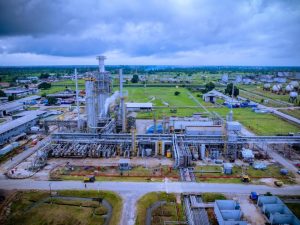
The Nigerian National Petroleum Company Limited (NNPC) has made significant progress in its refinery operations, signaling a new era for the country’s petroleum industry. The state-owned company recently sold its first batch of low-sulfur straight-run fuel oil (LSSR) produced at the Port Harcourt refinery to Gulf Transport & Trading Limited (GTT), a Dubai-based trading company. This shipment, expected to be loaded on the Wonder Star MR1 vessel, marks the first export from the refinery since its long-awaited upgrades.
Key Highlights:
1. Refinery Revitalization: The Port Harcourt refinery, with a capacity of 210,000 barrels per day (bpd), has resumed operations after undergoing modernization that began in 2020. Initially producing at a rate of 60,000 bpd, this marks the refinery’s transition into contributing to both domestic supply and export markets
2. Export Specifications: The 15,000-metric-ton cargo of LSSR fuel oil, equivalent to approximately 13.6 million liters, boasts a sulfur content of just 0.26%, aligning with global low-sulfur fuel standards. This shipment has the potential to influence global Very Low Sulfur Fuel Oil (VLSFO) benchmarks and reshape the dynamics of West African petroleum exports
3. Impact on Domestic and Regional Markets: The sale represents a shift towards reducing Nigeria’s dependence on imported refined products. With falling imports of clean petroleum products (CPP) into Nigeria and the West African region, the Port Harcourt refinery’s production is set to play a critical role in meeting local demand while simultaneously creating new export opportunities
4. Economic Implications: This development underscores Nigeria’s renewed commitment to leveraging its refinery capabilities. By entering the global fuel oil market, the NNPC aims to enhance revenue streams and optimize the utilization of local resources. This also aligns with broader efforts to reform and modernize Nigeria’s energy sector, improving both efficiency and transparency
Market and Industry Reactions
The cargo, sold at an $8.50 per ton discount to the North West Europe (NWE) 0.5% sulfur benchmark, reflects Nigeria’s competitive entry into the market. Analysts anticipate that consistent production and export from the refinery could gradually disrupt traditional supply chains, impacting imports from Europe and Africa
This milestone represents a significant step in Nigeria’s journey toward achieving energy self-sufficiency and becoming a key player in the international oil market. However, sustaining this momentum will require consistent output, further refinery upgrades, and transparent operations. For a nation heavily reliant on oil revenues, this is a vital development that could reshape its economic landscape.

